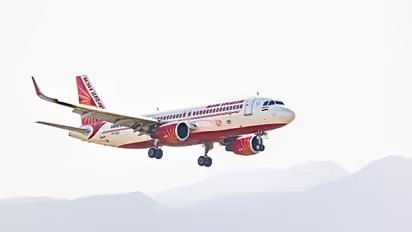How Air India avoided turbulence with a LEAP unlike Go First

Synopsis
A world of difference sets Air India's order apart from a sinking Go First, whose Airbus A320neo aircraft fleet is powered by Pratt & Whitney, says Girish Linganna
Airbus secured a big win in the Indian market in mid-February with Tata Group-owned Air India announcing its commitment to order 250 Airbus aircraft to boost its domestic and international operations. Within that order is a sizeable demand for the popular A320neo narrow-body family, accounting for 210 aircraft in total -- split into 140 A320neos and 70 A321neos.
However, despite Airbus's promise of supplying A320neo aircraft to Air India, it is quite improbable that the consignment delivery will be complied with for several years to come -- at least until the end-2020s. The production backlog of A320neo, as of end-January this year, was over 7,000 aircraft.
The Airbus-Air India deal is in sharp contrast to Go First airline's insolvency bid on Tuesday before the Delhi Bench of the National Company Law Tribunal because of the 'ever-increasing' number of Pratt & Whitney-supplied engine failures for which the airline has had to ground 25 aircraft -- 50 per cent of its Airbus A320neo fleet of 54 aircraft (it has a total fleet strength of 59) -- on Monday this week (May 1, 2023). Continued incurring of 100% of its operational costs has also set Go First back by Rs 10,800 crore in loss of revenues and incurring extra expenses.
"The percentage of grounded aircraft due to Pratt & Whitney's faulty engines has grown from 7% in December 2019 to 31% in December 2020 to 50% in December 2022. This is despite Pratt & Whitney making several ongoing assurances over the years, which it has repeatedly failed to meet," Go First said in a statement.
AIR INDIA'S BUSINESS ACUITY
A world of difference sets Air India's order apart from a sinking Go First, whose Airbus A320neo aircraft fleet is powered by PurePower PW1100G-JM, a high-bypass geared turbofan engine family from American aerospace manufacturer with global service operations Pratt & Whitney -- a subsidiary of Raytheon Technologies Corp (RTX) -- the exclusive engine supplier for the airline.
Air India's newly announced fleet of 210 Airbus A320/A321neo and 190 Boeing 737 MAX family aircraft will be exclusively powered by CFM -- a joint venture of GE and Safran. Air India and CFM International have signed an agreement for the largest-ever order for 800 CFM LEAP engines -- including 420 LEAP-1A and 380 LEAP-1B, besides spares.
The LEAP engine family has notched up one of the fastest aggregations of flight hours in the history of commercial aviation -- over 27 million engine flight hours and 11 million flight cycles. There has been an over 15 per cent improvement in the fuel efficiency and CO2 emissions of LEAP engines compared to the performance of the most recent CFM56 engines, which has measured an average of over 17 million tons of CO2 emission reductions.
CFM is helping initiatives by the aviation industry to ratify and adopt 100% Sustainable Aviation Fuel (SAF). LEAP engines conform to the currently approved specification of 50% SAF blends and also accomplished launching multiple demonstration flights with 100% SAF.
Pratt & Whitney International Aero Engines, LLC, manufactures the PurePower PW1100G-JM -- a high-bypass geared turbofan engine family which uses a geared turbofan configuration, adding a gearbox that enables the fan to turn slower than the remainder of the engine, which rotates at a higher speed for optimal performance. The CFM LEAP, on the other hand, utilizes a more conventional direct-drive configuration.
Stay updated with all the latest Business News, including market trends, Share Market News, stock updates, taxation, IPOs, banking, finance, real estate, savings, and investments. Track daily Gold Price changes, updates on DA Hike, and the latest developments on the 8th Pay Commission. Get in-depth analysis, expert opinions, and real-time updates to make informed financial decisions. Download the Asianet News Official App from the Android Play Store and iPhone App Store to stay ahead in business.